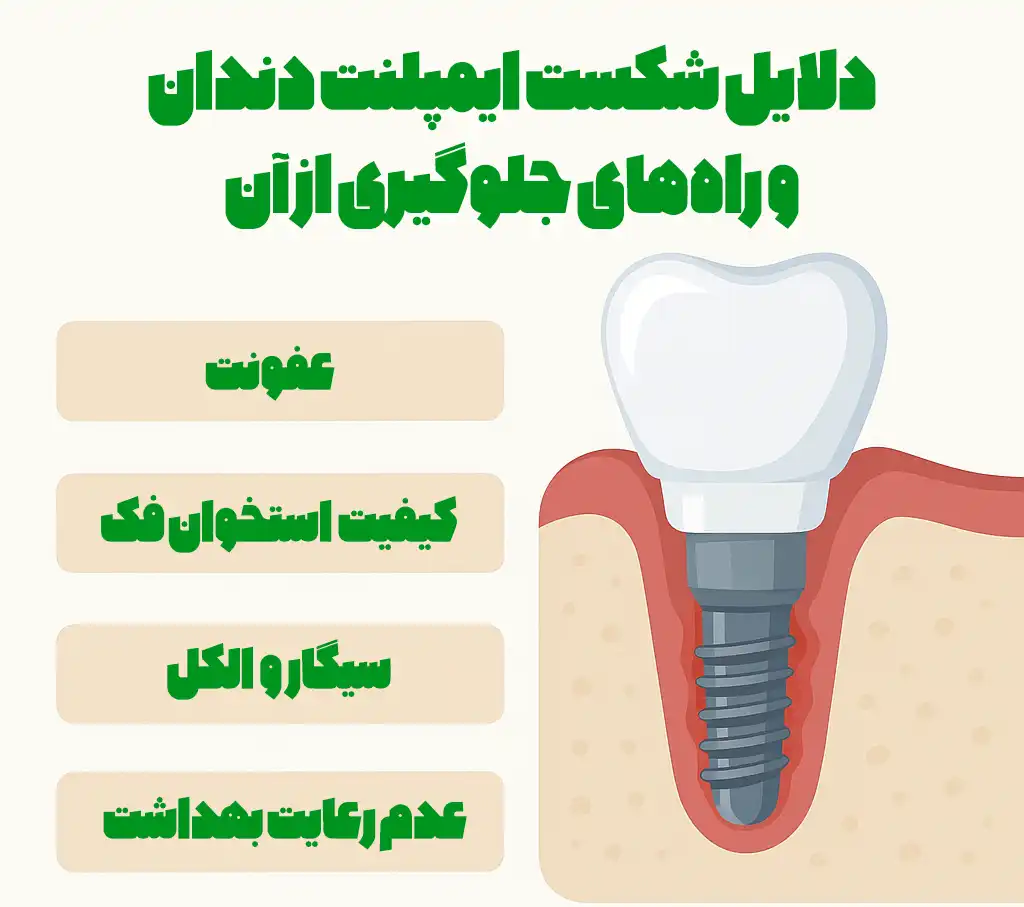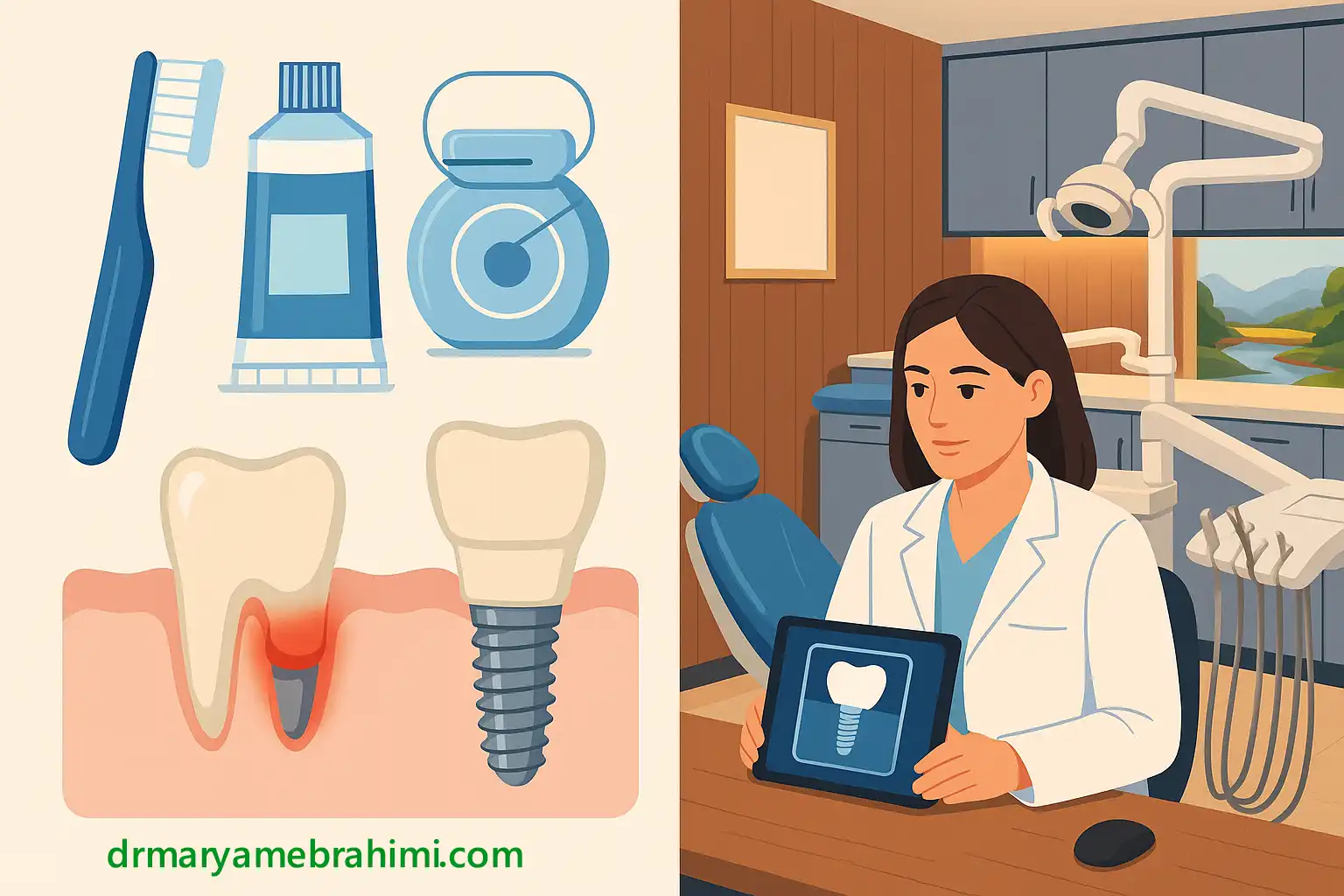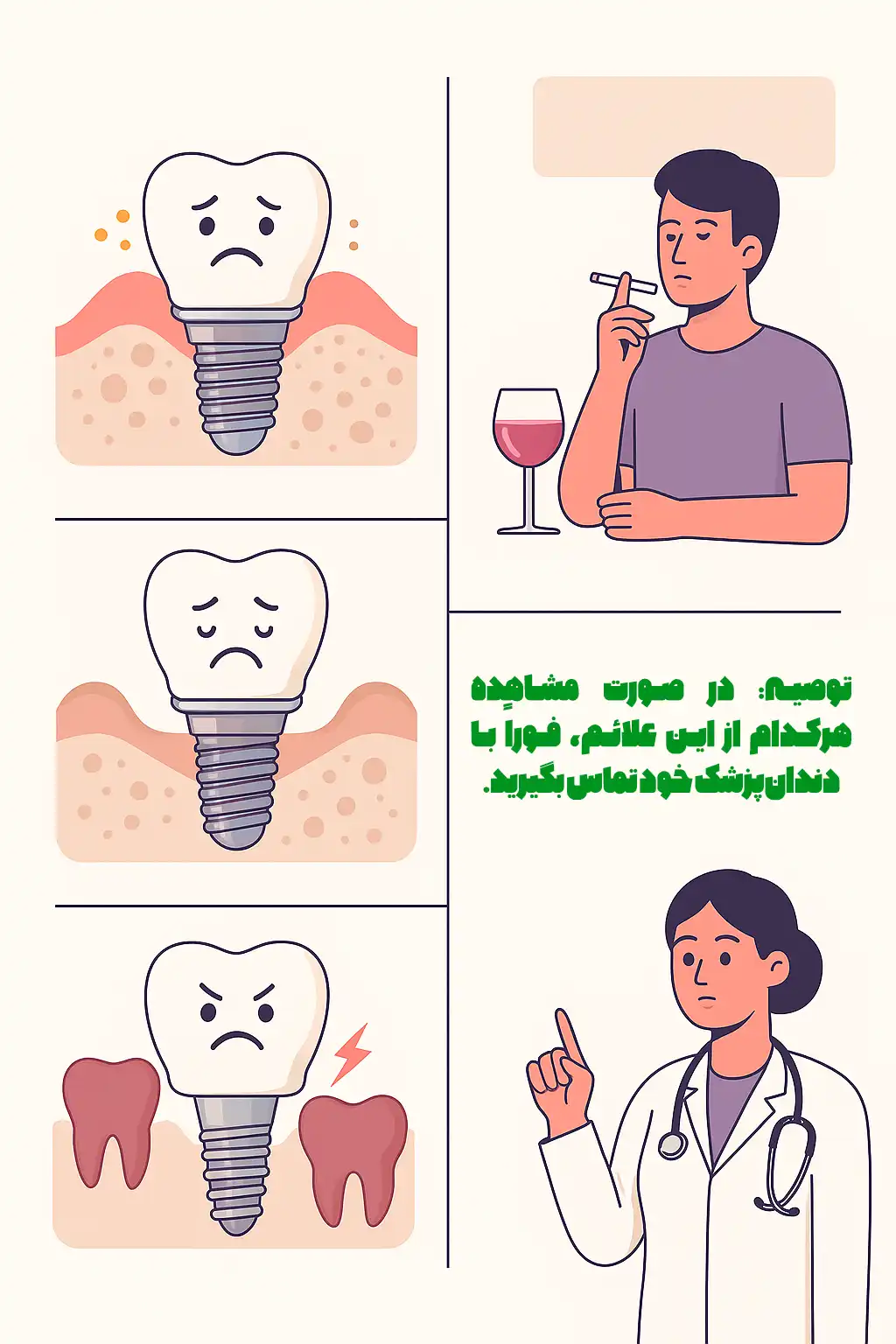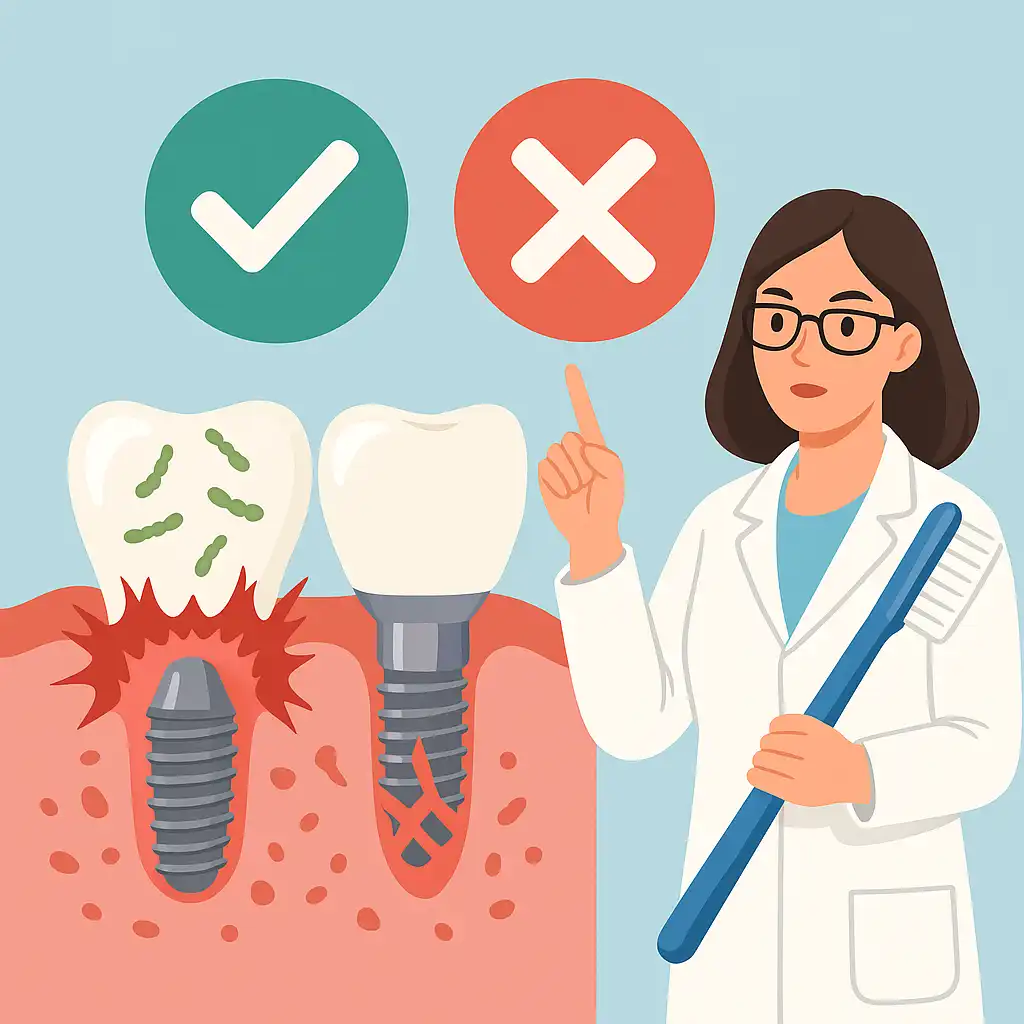Dental implants are one of the most durable ways to replace missing teeth and, when done correctly, have a success rate of around 95%.
But in some situations, this treatment may fail. In this article, through a scientific and empirical study by Dr. Maryam Ebrahimi, we will discuss the most important reasons for implant failure and ways to prevent it.

The main reasons for dental implant failure
1. Infection (peri-implantitis)
Peri-implant infection, or peri-implantitis, is one of the most common causes of failure. This problem is usually caused by a buildup of bacteria around the base of the implant. For prevention, careful oral hygiene and regular check-ups are essential.
2. Poor jawbone quality
Bone density plays a key role in implant success. Weak or depleted bone can prevent the base from healing. In these cases, bone grafting is recommended before implantation.
3. Smoking and alcohol consumption
Nicotine reduces blood flow to the gums and prevents tissue repair. Smokers are up to three times more likely to have implants fail than nonsmokers.
4. Excessive pressure when chewing
Excessive pressure in the first few days after surgery can cause mechanical failure of the implant. It is recommended to eat soft foods in the first few weeks.
5. Surgical errors or substandard materials
Incorrect alignment of the implant angle or use of poor quality brands can be a significant factor in treatment failure. Choosing an experienced implant specialist and a reputable brand is of great importance.

Warning signs of implant failure
- Feeling loose or moving in the implant
- Pain and inflammation around the implant
- Bad breath or purulent discharge
- Changes in the way you chew or clench your teeth
Recommendation: If you experience any of these symptoms, contact your dentist immediately.
How to prevent implant failure?
1. Maintaining oral hygiene
It is recommended to use a soft toothbrush, dental floss specifically for implants, and antibacterial mouthwash.
2. Choosing a specialist and experienced doctor
The doctor’s skill in determining the angle and depth of the implant plays a decisive role in success. Dr. Maryam Ebrahimi’s clinic uses digital technology to accurately design the implant position.
3. Proper nutrition
In the first few weeks, eat soft foods like soup, puree, and eggs. Calcium and vitamin D intake are essential for bone regeneration.
4. Avoid smoking and alcohol.
To speed up recovery and treatment success, avoid smoking and alcohol for at least two weeks before and after surgery.
5. Use high-quality brands
Dr. Ebrahimi’s clinic uses CE and FDA-approved implants to ensure durability and compatibility with the body.
Dr. Maryam Ebrahimi’s recommendations for increasing implant life
- Periodic check-ups every six months
- Annual radiograph
- Avoiding teeth grinding
- Control of systemic diseases such as diabetes

Conclusion
Dental implant failure is rare but preventable. By observing hygiene, choosing an experienced doctor, and regular care, you can ensure the long-term durability of the implant.
If you are looking for a specialized implant consultation, you can book a consultation appointment through the website or by calling Dr. Maryam Ebrahimi’s clinic.







